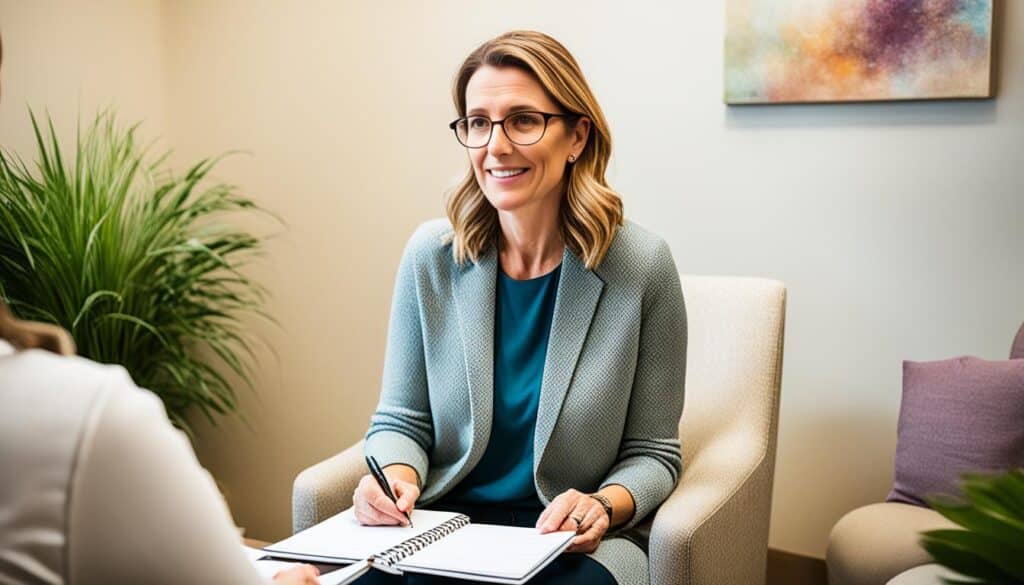Handling Relationship Insecurities: Building Trust And Strengthening Connections
Handling Relationship Insecurities is a natural part of any relationship. It can stem from past experiences, personal struggles, societal pressures, and more. However, there are strategies that can help couples navigate these insecurities and build a foundation of trust and connection. By focusing on open communication, embracing imperfections, and cultivating emotional intimacy, partners can overcome their insecurities and foster a deeper sense of love and understanding.
Key Takeaways:
- Open communication is essential in addressing relationship insecurities.
- Embracing imperfections can strengthen the bond between partners.
- Cultivating emotional intimacy can foster a deeper connection.
- Building trust is crucial for a healthy and secure relationship.
- Recognizing and addressing insecurities can lead to personal growth and a stronger partnership.
The Impact of Insecurity in Relationships
Insecurity in relationships is a prevalent issue that can significantly impact both individuals involved. It manifests in various ways, such as incessantly checking up on your partner, feeling jealous, and lacking trust. These signs of insecurity often stem from underlying causes that need to be addressed for a healthier relationship dynamic.
Causes of Relationship Insecurity
Insecurity in relationships can have multiple causes. Understanding these causes is crucial in addressing and overcoming insecurities. Some potential causes include:
- Unresolved trauma from previous relationships: Past experiences of betrayal, heartbreak, or abuse can lead to lingering insecurities.
- Low self-confidence: Individuals with low self-esteem may doubt their desirability and worthiness of love.
- Experiences of neglect or mistreatment: Being neglected or mistreated in past relationships can erode trust and create insecurities.
- Social anxiety: Fear of judgment or rejection in social situations can contribute to relationship insecurities.
- Fear of rejection: A deep-rooted fear of rejection can result in constant doubt and anxiety within a relationship.
By identifying and understanding the causes of relationship insecurity, individuals can take proactive steps towards building a healthier and more fulfilling connection with their partner.
“The first step in addressing insecurities is recognizing their underlying causes and their impact on the relationship.”
| Signs of Insecurity in Relationships | Potential Causes |
|---|---|
| Constant checking or monitoring of partner’s activities | Unresolved trauma from past relationships |
| Excessive jealousy or possessiveness | Low self-confidence |
| Lack of trust in partner | Experiences of neglect or mistreatment |
| Frequent need for reassurance | Social anxiety |
| Anxiety and fear of rejection | Fear of rejection |
The Role of Vulnerability and Self-Reflection
Vulnerability and self-reflection play vital roles in overcoming insecurities and building healthy, trusting relationships. By embracing vulnerability and engaging in self-reflection, individuals can navigate the complexities of their insecurities and foster personal growth.
Vulnerability is the act of opening up and sharing our deepest fears, dreams, and insecurities with our partners. This raw and honest communication fosters a sense of trust and emotional connection, laying the foundation for a healthy and intimate relationship.
Self-reflection is a powerful tool in managing relationship insecurities. It involves introspection and an honest assessment of our triggers, insecurities, and communication styles. Through self-reflection, we gain insight into our own emotional landscape, allowing us to better understand and articulate our needs to our partners.
Self-reflection also empowers us to take responsibility for our emotional well-being and work towards personal growth. By recognizing patterns and gaining self-awareness, we can navigate vulnerable moments more effectively, fostering a deeper understanding of ourselves and our relationships.
“Vulnerability is not winning or losing; it’s having the courage to show up and be seen when we have no control over the outcome.”
– Brené Brown
When we embrace vulnerability and engage in self-reflection, we create a safe space for growth and deep connection within our relationships. By openly sharing our fears and insecurities, we allow our partners to support us and understand our experiences. This vulnerability builds trust and intimacy, strengthening the bond between partners.
It’s important to approach vulnerability and self-reflection with compassion and empathy, both towards ourselves and our partners. This creates an environment where insecurities can be acknowledged and addressed without judgment, fostering mutual growth and understanding.
Benefits of Vulnerability and Self-Reflection in Relationships
Vulnerability and self-reflection offer numerous benefits in overcoming insecurities and fostering healthy, fulfilling relationships:
- Enhanced Communication: Opening up about our insecurities allows for deeper and more meaningful conversations with our partners. This level of honesty and openness strengthens communication skills and fosters understanding.
- Building Trust: Vulnerability creates a sense of trust between partners, as it demonstrates a willingness to be open and authentic. Trust is the foundation of any healthy relationship.
- Personal Growth: Self-reflection enables us to recognize and understand our insecurities, triggers, and communication styles. This awareness fosters personal growth and empowers us to navigate vulnerable moments more effectively.
- Emotional Intimacy: By embracing vulnerability, we invite emotional intimacy into our relationships. This deep connection allows partners to feel truly seen, heard, and understood.
By integrating vulnerability and self-reflection into our relationships, we create a space for open and honest communication. This enables us to overcome insecurities, embrace personal growth, and build stronger, more resilient connections with our partners.
The Importance of Communication and Trust
Effective communication and trust are crucial components of a healthy and flourishing relationship. When it comes to addressing insecurities, open and honest communication is key. It allows partners to express their feelings and concerns without blame, fostering understanding and empathy.
Emma Thompson, a relationship expert, emphasizes the significance of active listening:
“Active listening involves not only hearing your partner’s words but also understanding their perspective. It requires genuine attentiveness and empathy, creating a safe space for open and honest communication.”
By actively listening to your partner, you can gain deeper insight into their emotions and experiences, fostering a sense of connection and trust. Remember, effective communication involves both expressing yourself and genuinely listening to your partner.

Building and maintaining trust is equally important in a healthy relationship. Trust forms the foundation for a strong and lasting bond. It can be nurtured through consistent honesty, reliability, and open communication. When partners trust each other, they feel secure and confident in their relationship, allowing them to navigate insecurities with greater ease.
Mia Johnson, a relationship counselor, advises:
“Trust is built through consistent action and communication. It requires honesty, dependability, and a willingness to be vulnerable with each other. Trust is the bedrock of a healthy relationship.”
Trust can be further reinforced by honoring commitments, being transparent, and demonstrating reliability in both words and actions. Partners who trust each other have a solid foundation to address insecurities and cultivate a nurturing and loving connection.
Examples of Effective Communication:
- Expressing your emotions and concerns without blaming your partner.
- Using “I” statements to communicate how you feel.
- Validating your partner’s emotions and experiences.
- Respecting each other’s boundaries and actively listening.
- Engaging in regular check-ins to ensure both partners are heard and understood.
Remember, healthy communication and trust go hand in hand in creating a resilient and fulfilling relationship.
Strategies for Overcoming Insecurities
To overcome relationship insecurities, it’s important to implement effective strategies that can help you navigate these challenges. By employing coping strategies, seeking professional help when necessary, and utilizing various communication techniques, you can work towards building a healthier and more secure relationship.
Identifying Triggers
One of the first steps in overcoming insecurities is identifying the triggers that contribute to these feelings. Take the time to reflect on situations or behaviors that cause you to feel insecure. By recognizing these triggers, you can begin to address them directly and develop strategies to manage them.
Open Communication with Your Partner
Open and honest communication is crucial in overcoming relationship insecurities. Discuss your feelings and concerns with your partner, explaining how certain actions or situations impact you. By sharing your emotions in a respectful and non-blaming manner, you can foster understanding and work together towards finding solutions.
Expressing Emotions Effectively
When experiencing insecurities, it’s essential to express your emotions effectively. Clearly communicate how you feel, using “I” statements to avoid accusatory language. This approach encourages open and empathetic dialogue between you and your partner, enabling both of you to better understand each other’s perspectives.
Active Listening
Listening actively to your partner is another important strategy to overcome insecurities. Truly hear and understand their point of view by giving them your full attention. This demonstrates your commitment to the relationship and helps create a safe space for open communication.
Journaling
Journaling can be a valuable tool for tracking and understanding your insecurities. Take the time to reflect on your thoughts and emotions, noting any patterns or triggers that arise. By journaling regularly, you can gain valuable insights into your insecurities and develop coping mechanisms to address them.
Seeking Professional Help
If you find that your insecurities are persistent and significantly impacting your relationship, seeking professional help can be an effective solution. Couples counseling or individual therapy can provide a supportive environment where you can work through your insecurities with the guidance of a trained professional.
Coping Strategies
Implementing coping strategies can help you manage relationship insecurities on a daily basis. These may include practicing self-care, engaging in activities that boost your self-esteem, and developing a strong support system. Finding healthy outlets for your emotions and stress can greatly contribute to building a more secure and fulfilling relationship.

Remember, each person’s journey is unique, and it’s important to find the strategies and support that work best for you. By implementing these strategies and seeking professional help when necessary, you can overcome relationship insecurities and build a stronger, more fulfilling partnership.
Cultivating Emotional Intimacy
Building a strong and fulfilling relationship goes beyond surface-level interactions. Cultivating emotional intimacy is the key to deepening the connection between partners.
Emotional intimacy involves sharing the intricacies of your emotional world with your partner, creating a safe space for vulnerability and understanding. This can be achieved through meaningful conversations where both partners actively listen and empathize with each other’s experiences.
Expressing desires and needs openly is an important part of emotional intimacy. It allows partners to understand and support each other, fostering a sense of validation and closeness. When both partners feel heard and understood, their emotional well-being is prioritized, strengthening the bond between them.
| Benefits of Cultivating Emotional Intimacy | Actions to Deepen Emotional Intimacy |
|---|---|
|
|
Cultivating emotional intimacy requires effort and a willingness to be open and vulnerable with your partner. However, the rewards of a deepened connection and a stronger bond are well worth it.
Building Self-Love and Setting Boundaries
In the journey of managing relationship insecurities, building self-love and setting boundaries play a vital role. It is crucial to recognize and validate your own feelings and avoid self-blame or blaming your partner. Clear communication of your needs and boundaries can promote a healthier dynamic and enhance understanding within the relationship. Prioritizing self-care and self-compassion fosters a stronger sense of self, empowering you to navigate insecurities more effectively.
Developing self-love involves embracing your worth and acknowledging your own unique qualities. By practicing self-care, engaging in activities that bring you joy and fulfillment, and celebrating your achievements, you can cultivate a positive self-image.
Self-love is not selfish; it is necessary for creating a foundation of confidence and security within ourselves. Only when we love and accept ourselves can we truly love and accept others.
Setting boundaries is equally important in managing relationship insecurities. Clearly communicating your limits, needs, and expectations allows both you and your partner to establish a mutual understanding of what feels comfortable and respectful.
“Boundaries are not walls; they are guidelines that protect your own mental and emotional well-being. They show others how you want to be treated.”
Benefits of Building Self-Love and Setting Boundaries
The benefits of building self-love and setting boundaries are extensive. When you prioritize yourself and your well-being, you create a solid foundation for a healthy relationship. By understanding and valuing your own emotions, you can approach insecurities from a place of strength and self-assurance.
Setting boundaries fosters an environment of respect, trust, and open communication between partners. It allows both individuals to express their needs and limits, ensuring that the relationship maintains a healthy balance of give and take. Boundaries also provide a sense of safety, promoting emotional well-being and reducing anxiety within the relationship.
| Benefits of Building Self-Love | Benefits of Setting Boundaries |
|---|---|
| Increased self-esteem and self-confidence | Clear expectations and mutual understanding |
| Enhanced emotional well-being | Promotes respect and trust |
| Improved decision-making and problem-solving skills | Reduces stress and anxiety |
| Greater resilience and self-empowerment | Creates a balanced give-and-take dynamic |

Seeking Professional Help
In some cases, relationship insecurities may require professional help. Seeking therapy or couples counseling can provide a neutral space for partners to explore their emotions, communication patterns, and underlying issues. A trained professional can offer guidance, tools, and strategies tailored to the specific needs of the relationship, helping individuals overcome their insecurities and build a healthier dynamic.
Therapy or couples counseling can be a highly beneficial resource for couples seeking to address their relationship insecurities. A licensed therapist or counselor can provide professional guidance in navigating challenging emotions and difficult conversations, assisting partners in developing effective communication skills and conflict resolution strategies. By engaging in therapy, couples can gain valuable insights into the root causes of their insecurities and work towards building a solid foundation of trust and understanding.
“Couples counseling can be transformative, allowing partners to explore underlying issues and improve their relationship dynamics.” – Dr. Jane Williams, Licensed Marriage and Family Therapist
During therapy sessions, couples can expect to participate in individual and joint sessions, enabling each partner to express their feelings and concerns in a safe and supportive environment. Therapists may employ various therapeutic techniques, such as cognitive-behavioral therapy, emotion-focused therapy, or Gottman Method couples therapy, depending on the specific needs of the couple.
By seeking professional help, couples can gain a fresh perspective on their relationship and acquire the necessary tools to navigate their insecurities successfully. The goal is not only to address current issues but also to equip partners with the skills to maintain a healthy and fulfilling relationship in the long term.
The Benefits of Seeking Professional Help:
- Objective guidance from a trained therapist or counselor
- A safe and neutral space to explore emotions and concerns
- Effective communication and conflict resolution strategies
- Insights into underlying issues and insecurities
- Improved understanding and emotional connection
| Therapy vs. Couples Counseling | Benefits |
|---|---|
| Therapy |
|
| Couples Counseling |
|
It is essential to remember that seeking professional help is not a sign of weakness but rather a proactive step towards personal growth and a healthier relationship. By investing in therapy or couples counseling, individuals demonstrate their commitment to addressing their insecurities and cultivating a fulfilling partnership.

Practicing Patience and Celebrating Growth
Overcoming relationship insecurities requires patience and understanding. It’s important to acknowledge that personal growth and strengthening connections take time. Patience allows individuals to navigate through the ups and downs of their journey, offering the space needed to address insecurities and build a stronger foundation.
Celebrating milestones and moments of personal growth along the way is crucial. Reflecting on achievements not only reinforces positive aspects of the relationship but also provides motivation and encouragement for further progress. By celebrating milestones, both individually and as a couple, partners can foster a sense of accomplishment and create a supportive atmosphere.
When practicing patience and celebrating growth, it’s helpful to recognize that personal development is not linear. Each person’s growth trajectory is unique, and embracing both the small victories and the challenges can contribute to overall success. This journey towards overcoming relationship insecurities requires resilience, determination, and a commitment to personal growth.
| Milestones | Ways to Celebrate |
|---|---|
| Improved communication skills | Plan a date night to appreciate open and honest conversations. |
| Increased trust and vulnerability | Write each other heartfelt letters expressing gratitude and trust. |
| Effective conflict resolution | Enjoy a special dinner or outing to commemorate constructive problem-solving. |
| Individual personal growth | Set aside time to reflect on personal achievements and goals. |
By practicing patience and celebrating growth, partners can create a positive atmosphere of appreciation and motivation. This approach not only strengthens the bond between individuals but also supports ongoing personal growth and the continued development of a healthy, fulfilling relationship.
Men’s Mental Health and Relationship Insecurities
When discussing relationship insecurities, it is essential to recognize the significant role that men’s mental health plays in addressing and overcoming these challenges. Men, like anyone else, experience insecurities within their relationships that can hinder emotional connection and overall relationship satisfaction. By breaking stereotypes and embracing emotions, men can foster deeper connections and understanding in their romantic relationships, leading to healthier dynamics and improved overall well-being.
Traditionally, society has perpetuated the idea that men should be strong, independent, and emotionally stoic. However, addressing insecurities requires vulnerability and open expression of emotions. Breaking free from these stereotypes allows men to explore and embrace their own emotional needs, ultimately enhancing their ability to connect with their partners on a deeper level.
“By acknowledging and seeking help for mental health challenges, men can create an environment where love and connection can truly flourish.”
Recognizing the importance of mental health and seeking help when needed is a crucial step for men in addressing relationship insecurities. Men may face unique challenges in seeking help due to societal pressures and stigmas associated with seeking therapy or counseling. However, opening up to professional support can provide valuable insights, coping strategies, and tools tailored to individual needs, helping men navigate their insecurities and cultivate healthier relationships.
Also Read:- Nurturing Love: Proven Ways To Foster Healthy Relationship Habits
It is important to emphasize that seeking help is not a sign of weakness, but rather a courageous step towards personal growth and well-being. Just as physical health requires attention and care, so does mental health. By addressing mental health challenges head-on, men can create an environment within their relationships that nurtures love, trust, and mutual understanding.
Breaking Stereotypes and Challenging Expectations
Challenging societal stereotypes and expectations around men’s mental health is crucial for fostering open discussions and addressing relationship insecurities. By promoting mental health awareness and encouraging men to seek help, we can break down the barriers that prevent healthy emotional expression and connection.
Let’s take a look at some startling statistics:
| Mental Health Challenges | Help-Seeking Behavior | Impact on Relationships | |
|---|---|---|---|
| Depression | 1 in 10 men experience depression in their lifetime. | Men are less likely than women to seek help for depression. | Untreated depression can strain relationships and hinder emotional connection. |
| Anxiety | Men experience anxiety disorders at a similar rate to women. | Men are less likely to seek support for anxiety due to societal expectations. | Untreated anxiety can create distance and strain within relationships. |
| Substance Abuse | Men are more likely to struggle with substance abuse than women. | Men often face societal pressure to handle these issues independently. | Substance abuse can damage relationships and erode trust. |
These statistics highlight the need for men to address their mental health challenges and seek support. By doing so, they can not only improve their own well-being but also create a healthier environment within their relationships.
Addressing insecurities within relationships requires understanding, compassion, and the willingness to challenge societal expectations. By promoting men’s mental health, breaking stereotypes, and encouraging help-seeking behavior, we can create a society where love and connection truly thrive.
Conclusion
Handling relationship insecurities and fostering a deep connection requires open communication, vulnerability, and self-reflection. By embracing imperfections and building trust, partners can navigate their insecurities and experience personal growth. Cultivating emotional intimacy and seeking professional help when needed are valuable tools in overcoming relationship insecurities.
With dedication and commitment, individuals can overcome their insecurities and create stronger and more fulfilling relationships. It is essential to practice patience and celebrate personal growth milestones along the journey. By prioritizing open and honest communication, partners can foster a deeper sense of connection and create a solid foundation for a lasting relationship.
Remember, overcoming relationship insecurities is a process that requires effort from both partners. By investing in self-growth and nurturing the emotional bond, individuals can create a thriving relationship built on trust, understanding, and personal evolution.
FAQs
Q: How can I overcome feeling insecure in my relationship?
A: To overcome feeling insecure in your relationship, it’s important to address the root causes of your insecurities. Communicate openly with your partner about your feelings, seek reassurance, and work on building trust. It may also be helpful to explore your own insecurities and fears with a therapist.
Q: What are some common causes of insecurity in relationships?
A: Insecurities in relationships can stem from various factors such as past relationship experiences, personal insecurities, fear of abandonment, and attachment styles. Controlling behavior from a partner, lack of communication, and unresolved issues from the past can also contribute to feelings of insecurity.
Q: How can I trust my partner more and reduce feelings of insecurity?
A: Building trust in your relationship requires open and honest communication, consistency in actions, and reassurance from your partner. It’s important to address any trust issues you may have and work on strengthening your connection through mutual respect and understanding.
Q: What is the role of attachment style in relationship insecurities?
A: Attachment styles, developed in early childhood, can influence how individuals perceive and behave in relationships. An insecure attachment style, characterized by fear of abandonment or dependence, can contribute to feelings of insecurity in relationships. Understanding your attachment style can help you address insecurities and improve relationship dynamics.
Q: How can I stop feeling insecure in my current relationship?
A: To stop feeling insecure in your current relationship, focus on building self-confidence, communicating openly with your partner, and addressing any underlying issues that contribute to your insecurities. Seek support from a therapist or counselor if needed to work through your feelings and develop a healthier mindset.
Q: What are some effective ways to cope with relationship insecurities?
A: Some effective ways to cope with relationship insecurities include practicing self-care, setting boundaries, cultivating trust through positive experiences, and challenging negative thought patterns. Engaging in activities that boost your self-esteem and seeking professional help can also aid in managing insecurities.
Q: When should I consider talking to my partner about my insecurities?
A: It’s important to communicate with your partner about your insecurities when they start affecting your relationship or causing distress. Approach the conversation with honesty and vulnerability, expressing your concerns and needs while also being open to listening to your partner’s perspective.
